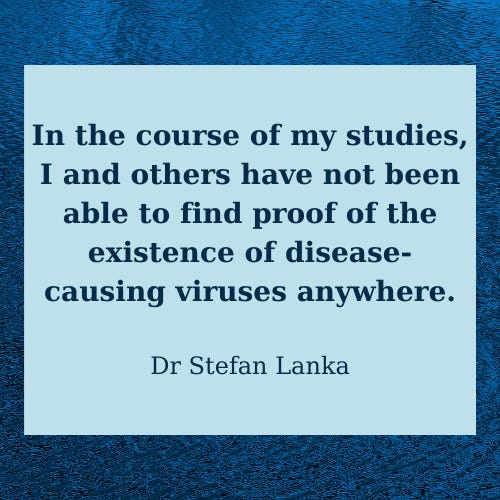The very real, but largely hidden health effects of the ‘pandemic’ – part one

This is part 1 of what will be a 2- or maybe even 3- part series in order to adequately cover the issues involved and expose the misinformation being reported, because the more I look into this, the more I feel needs to be discussed!
The topic that has caught my eye recently is related to ‘mental health’ and more specifically to what is referred to in various articles as ‘brain power’.
As always, I must emphasise that I am not denying the existence of health issues, including mental health issues. I also do not claim to be an ‘expert’ in the field – although I do question many of those who claim to be experts and I will be challenging what they claim to know.
I know it may seem strange that I trawl the BBC website for suitable topics to write about, but the core purpose of my articles is to highlight the problems with the ‘information’ provided by the mainstream media. My aim is to expose the lies to help us all gain better insights into what is true in order that we can live more in alignment with truth, because we cannot thrive when our lives are based on misleading or false information.
As most people know, the BBC is certainly a key player in the mainstream media (MSM); it is, after all, the mouthpiece of the UK government or, more correctly, of those behind the UK government because they are the real drivers of the policies that officials are trying to impose on us. But the influence of the BBC is not restricted to the UK, which is why the topics covered in their articles are of relevance to everyone. Many sources throughout the world cite the BBC as a highly respected purveyor of truth, a viewpoint with which I vehemently disagree!
The first article that caught my attention a few days ago is one with the title Brain power dropped among over-50s during Covid-19 pandemic, study shows. As someone within that age category, I found the title rather amusing, if a little insulting, especially as I don’t feel that my brain power has diminished at all in the past 4 years. If anything, I feel it has grown, but maybe I’m a little biased in that viewpoint.
I would also say that I don’t accept the view that the brain controls our cognitive functions in the way we are told, although that is outside the scope of the current discussion and a topic for another article!
So, accepting for the sake of this discussion the idea that the brain does control our cognitive function, the first question to address is: What is meant by ‘brain power’? We need to understand the meaning and context in which this phenomenon is being discussed in order to appropriately address the issues it raises.
According to the BBC article,
“The Covid pandemic may have impacted brain health in people in the UK aged 50 and over, according to a new study.”
The article explains,
“The study, called PROTECT – published in The Lancet Healthy Longevity – was set up to help understand how healthy brains age and why some people develop dementia.”
Here’s a link to the study,
The participants in the study were asked to complete yearly questionnaires and online cognitive tests, the results of which are said to have ‘revealed a decline’ that is ‘irrespective of Covid infection’.
It is also claimed that these results are partly, but not entirely, explained by ‘stress, loneliness, and alcohol consumption’. It would be laughable if it were not so tragic that people’s cognitive functions are said to have declined as a result of loneliness, when it was a deliberate policy to recommend that people isolate themselves in the name of health.
This policy was based on the hypothesis that they could transmit a germ that could ‘infect’ other people and make them ill or even kill them. But this hypothesis is completely unproven; there is no evidence, and never has been, that a ‘virus’ can cause disease, which makes it doubly tragic that people became stressed and lonely when there was no genuine scientific basis for the idea that they needed to isolate themselves to ‘protect others’.
I am not going to discuss the ‘no virus’ topic in this article, so if you are unfamiliar with the statement that there is no evidence whatsoever for the existence of any ‘pathogenic virus’, I would ask you to please read the many other articles I have written on the topic. You might like to start with this one,
The Germ Theory: A Deadly Fallacy
The vast majority of people around the world believe that the healthcare system promoted by the agencies responsible for public health, especially the WHO, is firmly based on ‘sound science’. This system, known as ‘modern medicine’, is perceived to represent an ‘elite’ branch of science, which suggests that any other approach to healthcare and healing m…
Returning to the BBC article, which reports that there are other factors that the study suggests may have affected people’s brain health,
“Coping with Covid fears, worries and uncertainties and disruption to routines may have had a “real, lasting impact” on brain health, they say.”
Remove the word ‘Covid’ and I would say that there is a substantial truth to that statement; fear, worries and uncertainty most definitely have an impact on our health, both physical and mental; whether it is a lasting impact or not will vary according to each individual.
This recent BBC article is, however, by no means the only one discussing the topic of the effect of the so-called ‘pandemic’ on the brain. For example, the following was reported in a March 2022 BBC article entitled Covid: How could the pandemic have affected your brain?
“Memory loss, fatigue and trouble concentrating can be symptoms of having had coronavirus.
But scientists think people who haven’t had Covid are also suffering increased tiredness, impaired decision-making and a lack of focus due to the pandemic.
Experts believe Covid uncertainty and disruption to routines have led to a phenomenon known as “pandemic brain”.”
Again, there are some definite truths within those statements, but I would not agree with the label ‘pandemic brain’ that has been given to the phenomenon or with the idea that any of these symptoms are related to ‘coronavirus’; these are all distractions from the real causes of such symptoms.
The article further states that,
“Scientists think regular changes in lockdown rules, travel restrictions, worries about getting the virus and limited face-to-face contact with others has affected some people’s brain health.”
Yet again, there are some truths within that statement; most people like some form of routine and consistency, so the frequency with which the ‘rules’ kept changing was definitely disruptive. And I would suggest that this was also a deliberate policy, because those behind all of this are fully aware of human psychology and how people’s ideas, thoughts and behaviours can be manipulated; but that too is another topic for another day!
And here’s yet more on the BBC website about ‘post-Covid’ brain problems; this time an August 2022 article entitled Covid: Brain fog more common two years on, study suggests
“Two years after having Covid-19, diagnoses of brain fog, dementia and epilepsy are more common than after other respiratory infections, a study by the University of Oxford suggests.”
The article continues,
“This study looked at the risks of 14 different disorders in 1.25 million patients two years on from Covid, mostly in the US. It then compared them with a closely-matched group of 1.25 million people who had a different respiratory infection.
In the group who had Covid, after two years, there were more new cases of:
- dementia, stroke and brain fog in adults aged over 65
- brain fog in adults aged 18-64”
Dementia, stroke, and epilepsy are far more serious conditions that will be discussed in more detail in the next part(s) of this series. Suffice it to say at this stage that the medical establishment is clearly keen to find ways to diagnose people with a condition, especially dementia, that can be ‘managed’.
It’s obvious that there is a concerted effort to perpetuate the notion that ‘Covid’ was a real phenomenon that was distinct from other respiratory conditions. I would suggest that more questions need to be asked with respect to the people who were included in the University of Oxford study; not least of which is: What ‘medications’ were being taken by the people claimed to have Covid?
Other questions would include: What ‘medications’ were people taking before their diagnosis? How were people diagnosed with Covid? Had any of these people received any Covid vaccinations?
The BBC article about the over-50s indicates the emphasis on providing a diagnosis for people,
“It is now more important than ever to make sure we are supporting people with early cognitive decline, especially because there are things they can do to reduce their risk of dementia later on.”
It’s clear that the medical establishment wants people to be reassured that their medical system cares about them and wants to help, as the article indicates,
“So if you are concerned about your memory, the best thing to do is to make an appointment with your GP and get an assessment.”
This is further supported by the NHS on the webpage entitled What is dementia that states,
“Although there is no cure for dementia at the moment, an early diagnosis means its progress can be slowed down in some cases, so the person may be able to maintain their mental function for longer.”
In other words, these reports are all intended to encourage people to believe that there is something ‘wrong’ with them and that the allopathic medical establishment system can help them with their ‘problem’.
But as I have shown in many previous articles, this medical system, commonly referred to as ‘modern medicine’, is part of the problem and therefore cannot provide the solution, even if there may be some merit to some of their practices.
If you aren’t familiar with the phenomenon of iatrogenesis, you might find this article of interest,
Are doctors’ strikes really a disaster for our health?
The medical system in the UK, known as the NHS, is currently in crisis and I wholeheartedly agree! But the real nature of the crisis is not how it is portrayed by the mainstream media, which is demonstrated by a January 2023 BBC article entitled The NHS crisis – decades in the making
The treatments used for these various conditions, which I’ll discuss in the next part, are only part of the problem with the mainstream ideas about ‘mental health’ issues.
As I stated at the beginning of this article, there is so much more to this topic.
To be continued…
If you enjoy reading my articles, please consider helping to support my work by subscribing, sharing my posts with your friends and family, or helping to expand my library. 📚 🙏










